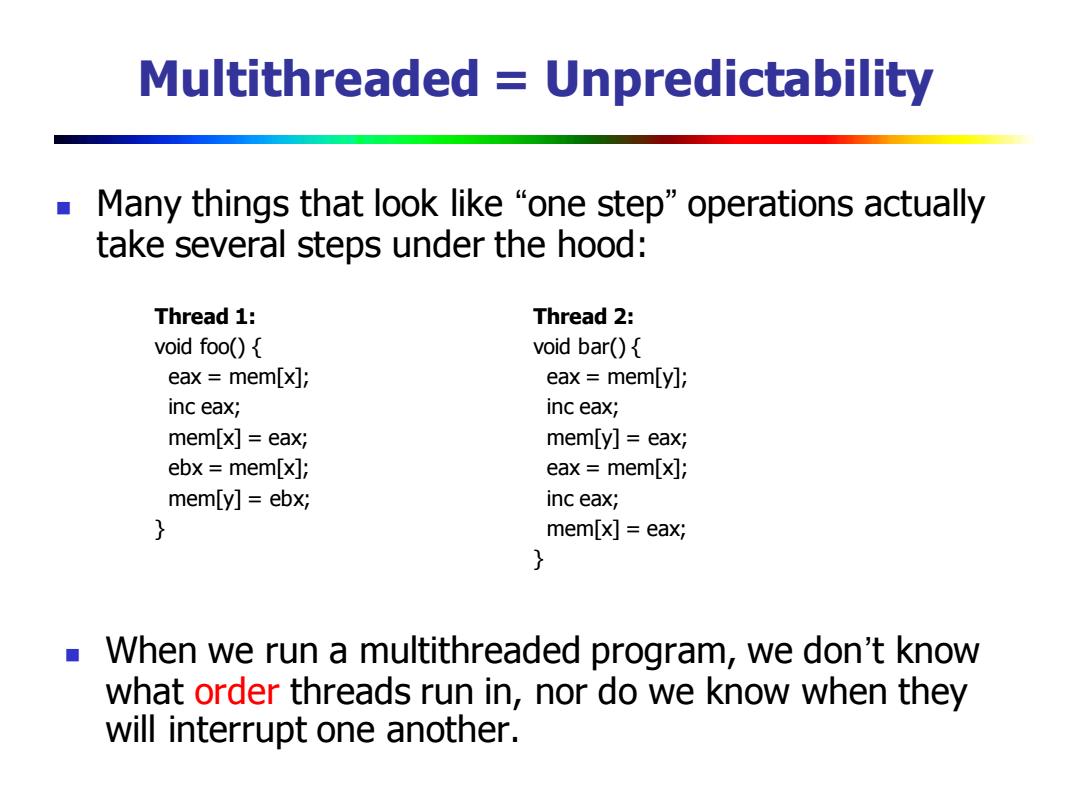
M然
And if you thought I was joking…

What is Wrong With This? Thread 1: Thread 2: void foo(){ void bar(){ X++ y++; y=X; X++ } If the initial state is y =0,x=6,what happens after these threads finish running?
What is Wrong With This? Thread 1: void foo() { x++; y = x; } Thread 2: void bar() { y++; x++; } If the initial state is y = 0, x = 6, what happens after these threads finish running?

Multithreaded Unpredictability Many things that look like "one step"operations actually take several steps under the hood: Thread 1: Thread 2: void foo(){ void bar() eax mem[x]; eax mem[y]; inc eax; inc eax; mem[x]eax; mem[y]eax; ebx mem[x]; eax mem[x]; mem[y]ebx; inc eax; mem[x]eax; When we run a multithreaded program,we don't know what order threads run in,nor do we know when they will interrupt one another
Multithreaded = Unpredictability ◼ When we run a multithreaded program, we don’t know what order threads run in, nor do we know when they will interrupt one another. Thread 1: void foo() { eax = mem[x]; inc eax; mem[x] = eax; ebx = mem[x]; mem[y] = ebx; } Thread 2: void bar() { eax = mem[y]; inc eax; mem[y] = eax; eax = mem[x]; inc eax; mem[x] = eax; } ◼ Many things that look like “one step” operations actually take several steps under the hood:

Multithreaded Unpredictability This applies to more than just integers: Pulling work units from a queue Reporting work back to master unit Telling another thread that it can begin the "next phase”of processing ..All require synchronization!
Multithreaded = Unpredictability This applies to more than just integers: ◼ Pulling work units from a queue ◼ Reporting work back to master unit ◼ Telling another thread that it can begin the “next phase” of processing … All require synchronization!

Synchronization Primitives Lock Semaphore Barriers Thread 1: Thread 2: void foo(){ void bar( sem.lock(); sem.lock(; X++; y++; y=X X++ sem.unlockO; sem.unlockO;
Synchronization Primitives Semaphore Barriers Lock Thread 1: void foo() { sem.lock(); x++; y = x; sem.unlock(); } Thread 2: void bar() { sem.lock(); y++; x++; sem.unlock(); }